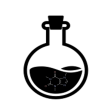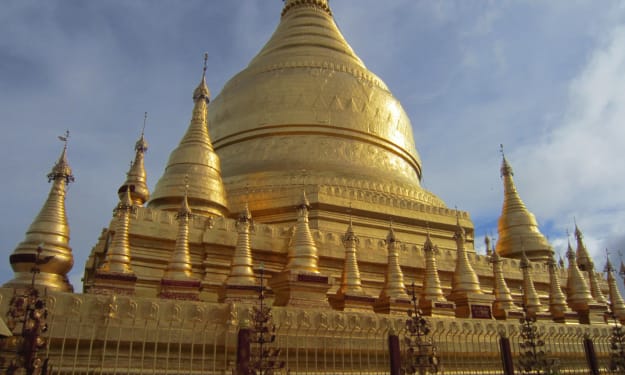Examining the Modern Distrust of Science in the US
In recent years we've seen a large decline in the trust of science. This is evident on social media and in politics. I want to examine what brought about this change.

Throughout history, science has always pushed the boundary of public belief. Thankfully we have moved past the days where scientists were killed for fear of them being users of dark magic. Through general acceptance and applications of science we were able to prove its usefulness and have made great strides in our knowledge of the world around us. However, we may be moving back to the time where science is misunderstood as something bad.
I myself am a chemist. I specialize in the environment and renewable energy. I am rather active on Instagram where I post about environmental issues and propose solutions that individuals can do to make a difference. I have seen and been on the receiving end of people saying science is "a liberal agenda" that I should "stop spreading lies" and that I "need to do some research." Now I know I have yet to get my PhD, but even when I do I will not be taken seriously by these people. Becoming an expert in a field no longer means anything to many people. It's actually become a rallying cry of many in the environmental movement. The signs read: "Why get an education when you still won't believe me?" and in the current climate, they have a point. I have devoted my life to education and building scientific knowledge and few seem to understand this.
The general public appears to be moving away from science in favor of various articles they read on the internet. I'm not sure if anyone could have predicted that in 2019 the public is in favor of sources like Vox media and Buzzfeed and actually use these sources against science in arguments. I got in an argument about a month ago with a person who believed that WIFI was destroying your blood based on a video he saw of a sound wave moving water. I've also argued with "Flat Earthers" and "Anti-Vaxxers" and countless others. If you've read my previous article, you'd know that I've argued about soy and testosterone so much I wrote a paper about it.
If you've made it this far after reading the rantings of an upset scientist, congratulations. I imagine at this point I will have dissuaded many people from reading the actual point of this article. The actual examination of what brought about this turn. Like most things I believe it is a combination of a multitude of factors. I would like to focus on a few of these factors: a polarizing political climate, the degradation of the education system, and the disappearance of philosophy.
The political climate of America has become somewhat of a war zone. In some cases almost literally with arguments coming to blows over political views. (For those who aren't familiar, America has only two nationally recognized political parties whereas most other countries have quite a few. And in America you are expected to be one side or the other even if you are in the middle. Once that label has been placed on you, you are seen as an enemy to many in the other party.) Holding a civil debate has become extremely challenging especially with the influence and anonymity the internet provides. One of the most challenging things is you usually cannot interpret tone over a short tweet or comment so it is incredibly hard to tell when someone is joking or being serious.
In recent years, science is being viewed more and more as a liberal/leftist agenda or lie as some put it. Long gone are the days when supporting science was seen as patriotic. Without the incentive of winning a space race or helping the agricultural industry, it has fallen out of favor with many in the public eye. Statistics have shown for quite some time that the higher education you receive, the higher the tendency for your views to be more liberal. This of course does not mean that by getting a higher education you will become more liberal. I attend a STEM school in Colorado and the views here are quite mixed.
However, it seems that in recent years many view higher education as a form of brainwashing, pushing a liberal agenda, and is viewed as "bad for America." Due to this, fewer people of the Republican beliefs are pursuing higher education. This leads to a large education gap that only adds more to the polarity of the political climate as well as a strange gap in understanding of how the world works. It's a strange phenomenon where many Democrats see nothing wrong with higher education (and therefore science) and tend to believe what scientific findings show. Whereas many Republicans simply do not trust it because the other party holds it in high regard.
It also appears that the belief that being wrong is the worst thing you can do has become normalized even more by the internet. If someone loses an argument, or is proven wrong many will make fun of that person. This issue that takes place in grade school has spread to all forms of social media. This leads to many being afraid to ask questions for fear of being criticized. The other day I replied to a comment asking why sharks are important to the oceans and I was ridiculed for answering "such an obvious and stupid question." I personally find this ridiculous. The person asking may not be knowledgable in biology and ecosystems and I believe they should be allowed to ask without being looked down on.
This brings me to my next topic, the American School System. In high school I gave a speech for an English class on the failings of our school systems. Because of it I was nominated to give a Tedx talk for our school. It ended up falling through, but they made me give it again anyways. My biggest problem with our school system is it creates a fear of being wrong. Many teachers say that "there is no such thing as a stupid question" and then proceed to criticize students for being wrong and don't stop classmates from laughing at students mistakes. The whole idea of education is that we learn from our mistakes. If you make a mistake and are made fun of, rather than learning from it you just loose the will to participate and dread the thought of a teacher calling on you.
This fosters a poor learning environment and many of the students who are ridiculed in class are seen as the bad students because they simply don't want to participate. This can lead to a large gap in knowledge between the students who participate and the students who don't. Because of their bad experiences many view education as a bad thing and can also associated this with science. Many teachers do not like their views or ideas being questioned either, but in reality students need to be questioning them to be able to asses the biases and knowledge gaps of their teachers. Teachers do not know everything and they should be questioned. (This of course does not mean that if your teacher references something that is common knowledge like the world being round you can assume they are incorrect.)
Another large issue is the huge difference in education based on location. I grew up in a small town in Alaska. I did not get the same education as my partner who is from San Francisco, California. This difference in level of education as well as content covered leads to many people thinking different information is correct. For example, in the US only 24/50 states have to provide sexual education. Out of those 24, only 21 require that information to be medically/scientifically accurate. And out of that 21 only 8 states teach require education about consent and sexual assault. This also applies to science education. Many states allow students to "opt out" of biology classes where evolution is being taught. This is something I personally never understood as there is supposed to be a separation between church and state, but I suppose, like many other things, the constitution only applies when it benefits a certain viewpoint.
All of this leads to the role that philosophy plays in modern society. In ancient times, philosophy bridged the gap between complex concepts in theology and science and made them understandable to the general public. Philosophers discussed complex ideas about the universe and life and shared their thoughts with the people. In modern times, philosophy no longer exists in the same capacity it once did. Physicist Stephen Hawking made the claim that "philosophy is dead" because "philosophers have not kept up with modern developments in science."
This is a big problem because scientists keep working to broaden the scientific knowledge base, but without a good way of sharing their findings with the general public a lot of the information is essentially lost in translation. Scientific research papers are written by experts to other experts. You need to have a good understanding of the topic as well as the language used to be able to understand the paper fully. The general public does not and isn't expected to have that knowledge base. For example, I study chemistry and if I were to read a research paper on astrophysics I might be able to understand it some, but not nearly as much as another astrophysicist would be able to. They would know what questions to ask and how to build off of it.
This is why we need philosophers who understand and specialize in scientific topics. This way they know what questions to ask and how to translate that into ways the general public can understand it, without losing large amounts of information. That way when we get an image of a black hole, many don't dismiss it as CGI and fake. Or when we disprove certain theories, people don't cling on to wrong information.
Of course this is just a theory on why this distrust is occurring. I hope to open this to civilized debate and make you question your assumptions and your own beliefs. I want us to be able to come together through our understanding of how the world works so we can all work together in the best way we can.
Have a great day everyone.
- Logan
About the Creator
The Coffee Ghost
Come weary traveler and sit beside my fire. The world is cold and harsh; this I know all too well. I cannot offer you much besides a cup of tea or coffee and a brief respite from reality.
I'm a "ghost writer", get it?
Reader insights
Outstanding
Excellent work. Looking forward to reading more!
Top insight
Expert insights and opinions
Arguments were carefully researched and presented






Comments (3)
Very interesting!
Only disagreement I have is that you used the word 'modern'. Science has been distrusted for ages, and the ivory tower is not that sturdy (remember: of the three 'r's', only one actually begins with an 'r' - reading; not much concern about the others). Seriously, I am glad you wrote this and that someone else noticed what is happening.
I'm no scientist, but I agree with just about everything you said. Hostility has become the norm when it comes to discussing politics and I have seen countless people bullied for not understanding something or asking questions about things that others deem as "obvious". Our education system in the US is broken and there are so many important things missing from the curriculum entirely. It's almost as if people forget that those children will one day be adults living and working in society with the rest of us. The importance of teaching these things early on can not be overstated. You are a great writer and intellectual, keep it up😊